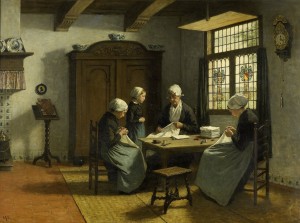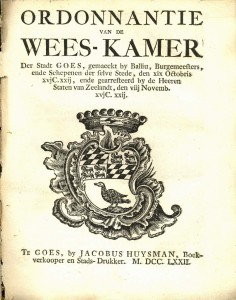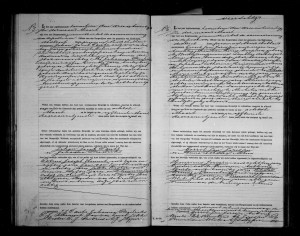In my article about the Weeskamer (orphan chamber), an institute that oversaw the estates of orphans before 1811, several people asked me what records might exist for later orphans. The richest source of information are guardianship records, which can be found in the records of the court. Court-appointed guardians After 1811, the courts oversaw the appointing of guardians. If one parent died, the surviving parent automatically became the guardian, without the need for the court to interfere. … [Read more...]
Dutch term – Weeskamer
A weeskamer is the orphan chamber, a government body responsible for overseeing the administration of the estates of (half) orphans. Weeskamers should not be confused with orphanages: they did not take care of the orphans, just the administration of the estates. Weeskamers existed in most parts of the Netherlands until 1810. After 1810, their tasks were taken over by the court. They also existed in Dutch colonies, like New Amsterdam (present-day New York). Tasks of the orphan chamber After a … [Read more...]
Dutch term – Vondeling
A vondeling is a foundling, an abandoned child whose parents are unknown. It was rare for children to be abandoned. Most cases where children were abandoned took place in the city, not in the countryside. Most abandoned children were raised in orphanages or were placed in a home while the city poor relief paid for their upbringing. Example: Johanna Frederiks Johanna Frederiks was the second wife of my ancestor Johan Jacob Tanto. When they got married in Enkhuizen on 23 March 1817, the … [Read more...]




